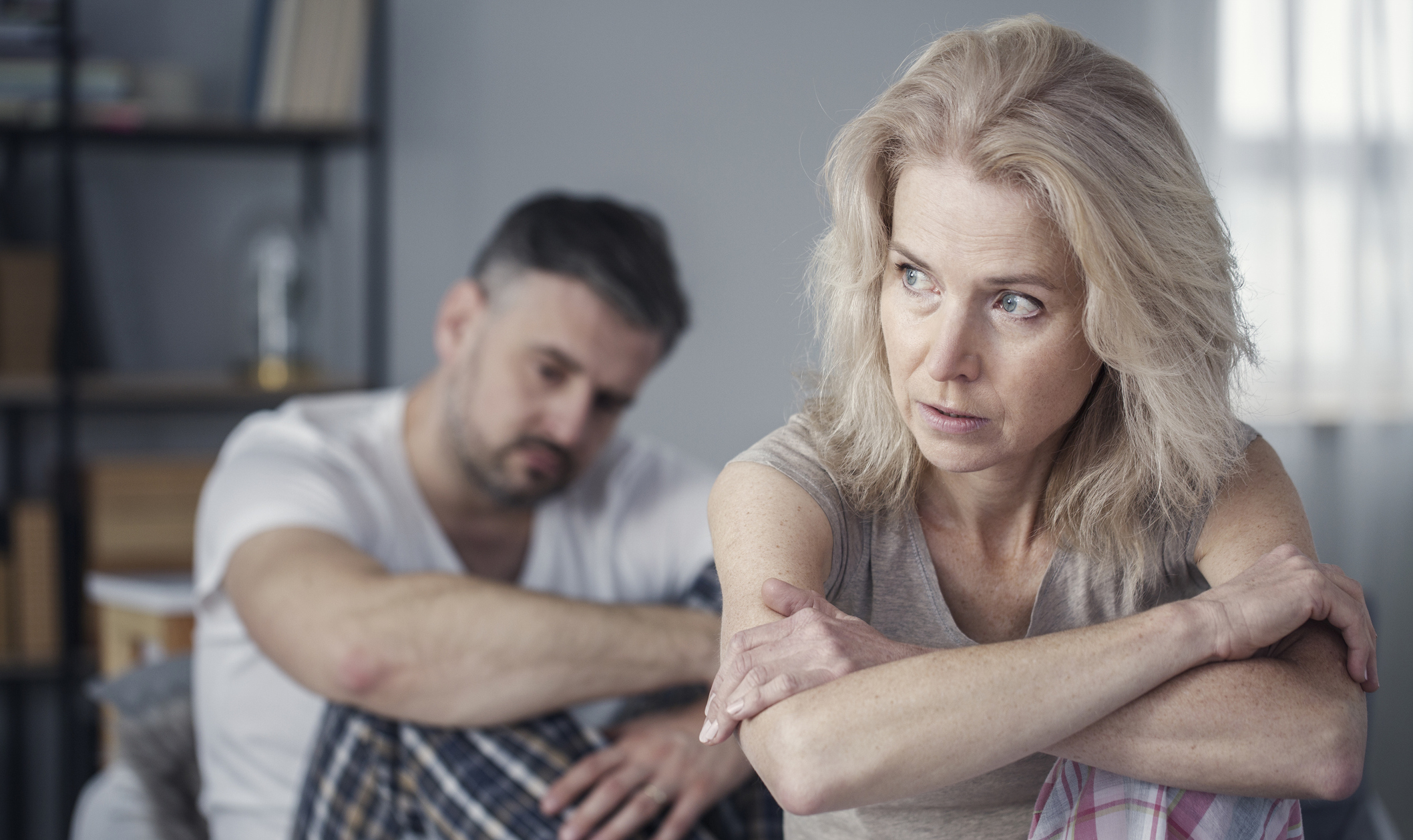What are the common causes of pain during sex?
Valentine’s Day always puts the focus on love, romance and, yes… sex. Unfortunately though for some women this may not be cause for celebration. If you are one of the estimated 20% of Australian women who experience pain with intercourse, date-nights might even be viewed with dread at the expectation that they will end in (painful) sex. So what are the causes of sexual pain?
A great way to work out the possible causes and communicate effectively with your doctor is to start by answering these questions:
How old are you?
Some causes of sexual pain are more common at certain life stages. For example, a young girl is more likely to be tense during early sexual encounters and have a tight vaginal opening. A post-menopausal woman however is more likely to experience vaginal dryness and tissue fragility, called atrophy (awful word!) due to estrogen deficiency.
Where is the pain?
Is it on the outside or the inside? Superficial or deep? For example, pain on the vulval or labial areas suggests completely different causes compared to pain only felt deep inside the vagina. During intercourse, pain that is felt with initial penetration of the vagina is called “superficial dyspareunia” whereas pain that is felt only higher up with deeper penetration or thrusting is call “deep dyspareunia”.
When does it happen?
Do you only have pain during intercourse or is it also with weeing/pooing/wiping, bike-riding, wearing tight jeans, etc? Is there pain right from the start of intercourse or does it gradually build up? Do you only feel it around the time of your period? Try to work out if there are any particular activities associated with the pain.
Have you ever had sex that wasn’t painful?
If you have then something must have changed to make sex painful now. Try to pinpoint when things changed and what was happening at the time. Is it a different partner? Have you had a baby? Had a traumatic sexual experience? Been through menopause?
Can you (or your partner) see or feel anything different?
If you’ve never “made friends with your fanny” then now would be a really good time to break out the hand mirror and get to know her. There’s a wealth of potential clues to be found by looking at the vulva and vagina: do you see any discoloration, sores, bleeding, tears or peeling skin on the vulva or labia? Are the labia inflamed, white or becoming flattened and tight-looking? (this may indicate a chronic skin condition which needs specialist treatment). Can you see anything bulging from the vaginal opening? (this might indicate a prolapse). Is it tender to touch the skin or vaginal entrance? Can you put your fingers inside without pain? Can you feel anything unusual in the vagina?
Are there any other symptoms or significant medical conditions?
An history of autoimmune or skin disease for example may be linked to your stinging vulval pain. A history of anxiety might make the psychological aspects of sexual pain worse. Urinary symptoms may be hinting at an underlying prolapse, UTI or vulvovaginal atrophy. Vulval itch and redness make thrush or more likely if you still have periods, or if you’re post-menopausal then again it could be vulvovaginal atrophy. Consider your complete medical history and be sure to mention these things to your doctor.
Putting it all together…
Having considered these questions, you may now be closer to working out what the underlying cause is for your pain during sex. Some of the commonest ones are:
- Thrush (unless you’re postmenopausal and not on HRT)
- Bacterial vaginosis
- Vaginal dryness or atrophy
- Skin disorder/ inflammation
- Sexually Transmitted Infections (be suspicious of this if you’ve have a new partner)
- Vaginal muscle spasms (vaginismus)
- Psychological distress
- Pelvic nerve pain
- Vulvodynia (chronic vulval pain of unknown cause)
Check out this great information from Jean Hailes for Women’s Health with details about these and other potential causes of pain during sex. The Australasian Menopause society also has concise, evidence-based summaries about vulvovaginal symptoms after menopause and sexual difficulties in the menopause.
Go to the doctor, my dear.
If you have pain during sex I strongly urge you to find a caring, knowledgeable women’s health doctor to help. One of the commonest causes of sexual pain over 50 is vaginal dryness, which can be greatly improved with vaginal estrogens (very safe, but you do need a prescription) as well as special lubricants and moisturisers. There are potentially serious causes for these symptoms however and you may need to get your cervical screening up to date or have some other tests so a thorough assessment by a medical professional is really important.
If you have significant physical or psychological pain you may be fearful of examinations; this is reasonable and understandable. Communicate this fear clearly to your doctor, and make sure that you trust them to be gentle and to stop if asked. You don’t have to submit to a painful or degrading examination, so do call a stop if needed and it’s totally fine to ask for a friend or chaperone to be present.
If you can’t find the help you need then then book a Telehealth consultation with an expert WellFemme menopause doctor to discuss whether your sexual pain may be related to menopause, and what treatments are best suited to you.
Tags
atrophy, canberra, Dr. Kelly Teagle, menopause and vaginal dryness, pain with intercourse, sex, vaginal dryness, vaginal dryness and menopause, vaginal pain, WellFemme,
